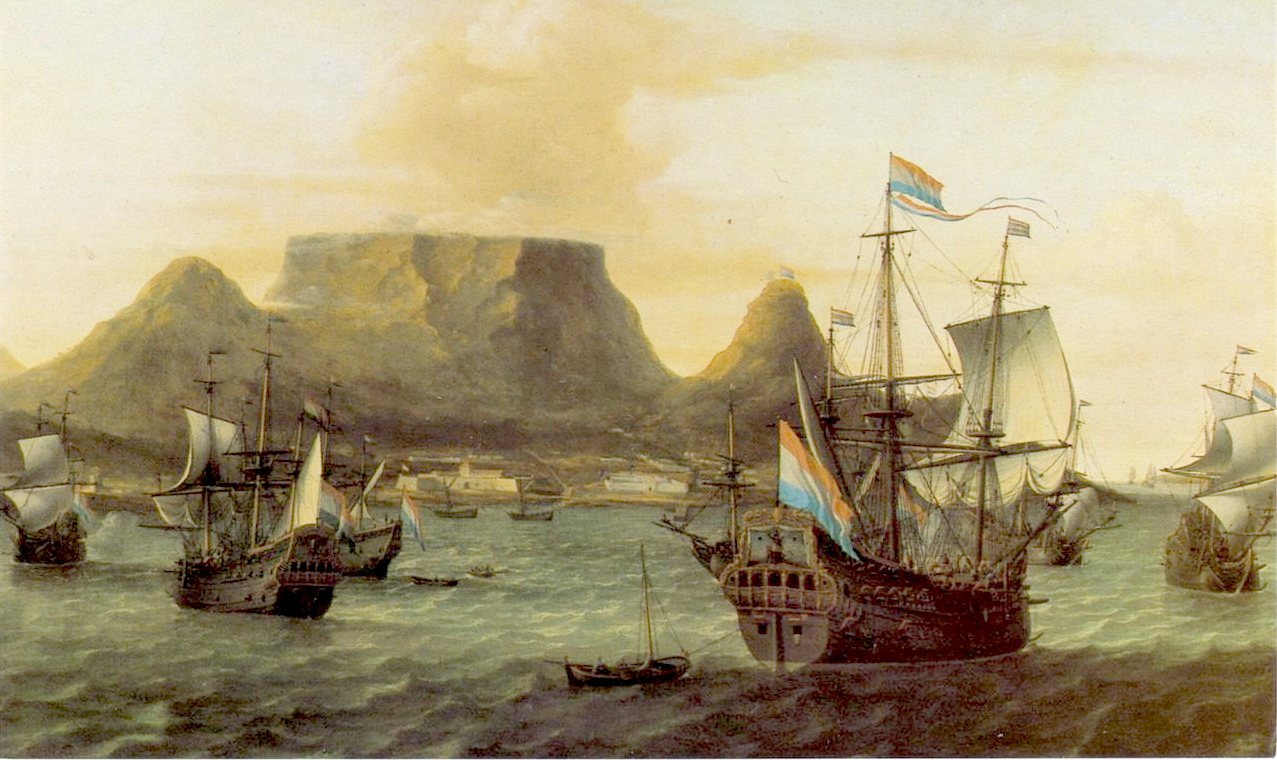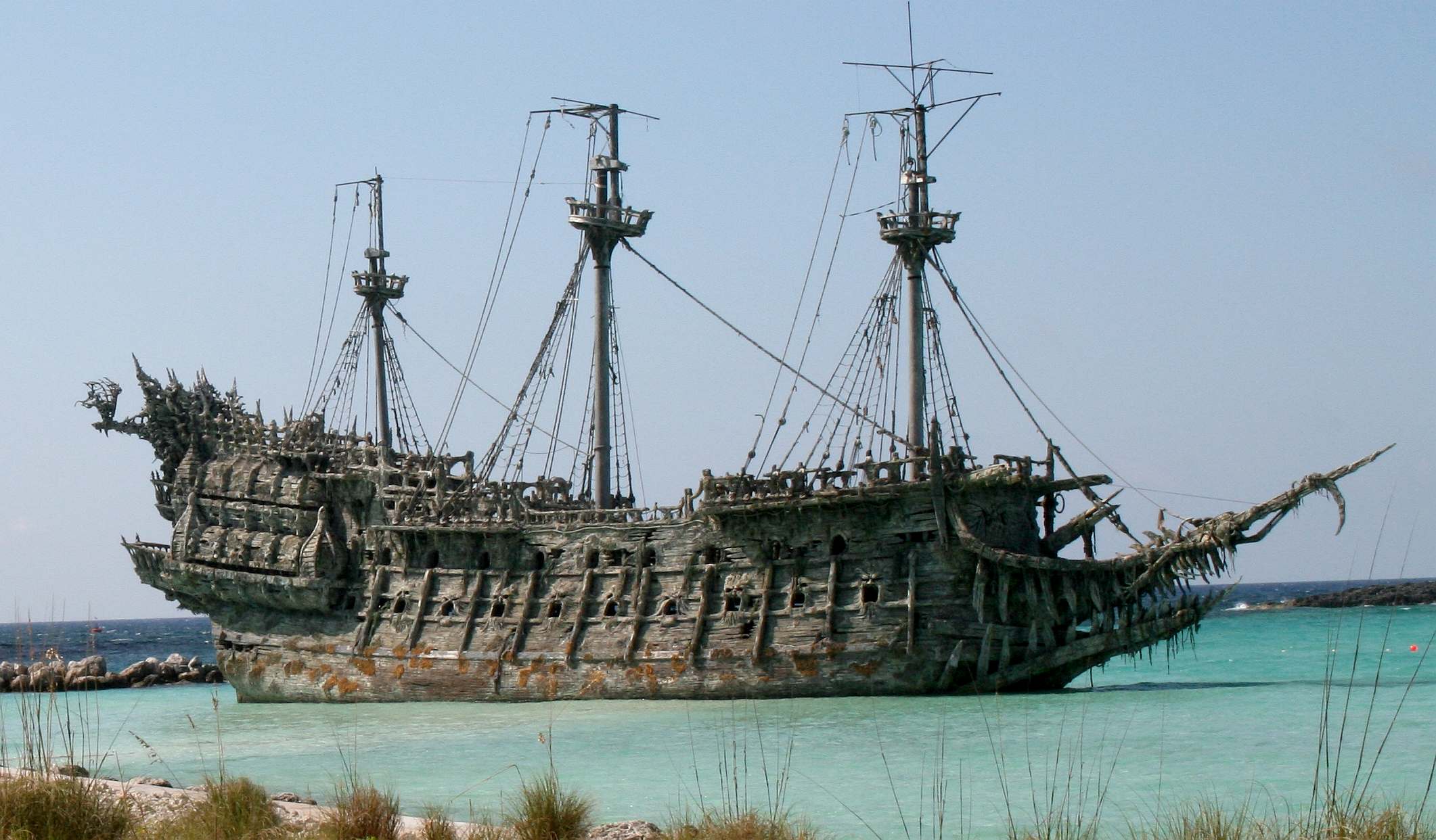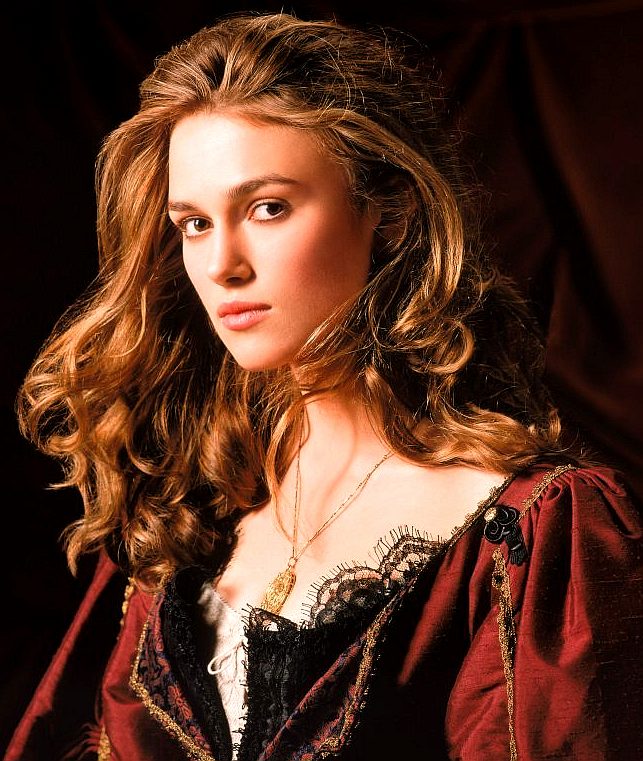|
THE FLYING DUTCHMAN
Please use our A-Z INDEX to navigate this site or return HOME
|
||
The Dutch merchant fleet in 1683, Table Bay
In European maritime legend, the Flying Dutchman is a spectre (ghost) ship doomed to sail forever. The appearance to sailors is believed to signal imminent disaster as part of ocean lore; the sight of this phantom ship is a portent of doom.
REPORTED SIGHTINGS
There have been many reported or alleged sightings in the 19th and 20th centuries. A well-known sighting was by Prince George of
Wales, the future King George V. He was on a three-year voyage during his late adolescence in 1880 with his elder brother Prince Albert Victor of Wales and their tutor John Neill Dalton. They temporarily shipped into HMS Inconstant after the damaged
rudder was repaired in their original ship, the
400-tonne corvette Bacchante. The princes' log (indeterminate as to which prince, due to later editing before publication) records the following for the pre-dawn hours of 11 July 1881, off the coast of Australia in the Bass Strait between Melbourne and Sydney:
ORIGIN OF THE LEGEND
The Flying Dutchman (De Vliegende Hollander) is a legendary ghost ship which was said to never be able to make port, doomed to sail the oceans forever. The myth is likely to have originated from the 17th-century Golden Age of the Dutch East India Company and Dutch maritime power. The oldest extant version of the legend has been dated to the late 18th century. According to the legend, if hailed by another ship, the crew of the Flying Dutchman was said to try to send messages to land, or to people long dead. Purported sightings in the 19th and 20th centuries claimed that the ship glowed with a ghostly light.
VERSIONS
In the most common version, the captain, Vanderdecken, gambles his salvation on a rash pledge to round the
Cape of Good Hope during a storm and so is condemned to that course for eternity; it is this rendering which forms the basis of the opera Der fliegende Holländer (1843) by the German composer Richard Wagner.
FATA MORGANA, MIRAGE
PIRATES OF THE CARIBBEAN
The key players of the Pirates of the Caribbean film series are Johhny Depp as Captain Jack Sparrow, Elizabeth Swann (Keira Knightley) and Geoffrey Rush as Captain Hector Barbossa, with Orlando Bloom as Will Turner.
The Pirates of the Caribbean stories follow the adventures of Captain Jack Sparrow (Johnny Depp), Will Turner (Orlando Bloom) and Elizabeth Swann (Keira Knightley) on a quest for treasure, the fountain of youth with Joshamee Gibbs (Kevin McNally), and restitution from various curses relating to gold and silver coins, all the while evading the British Royal Navy, and Commodore James Norrington (Jack Davenport), featuring Blackbeard (Ian McShane) and Angelica (Penélope Cruz), ending with Carina Smyth (daughter of Hector Barbossa, Kaya Scodelario) and Henry Turner (son of Will and Elizabeth, Brenton Thwaites) taking a shine to each other against (Javier Bardem) Armando Salazar, who is seeking revenge.
Pirates of the Caribbean was produced by Jerry Bruckheimer with directors Gore Verbinski, Rob Marshall, Joachim Rřnning, and Espen Sandberg. The series was primarily written by Ted Elliott and Terry Rossio.
Kiera Knightly as Miss Elizabeth Swann in an absolutely stunning outfit
Please use our A-Z INDEX to navigate this site
|
||
|
This website is Copyright © 2020 Jameson Hunter Ltd
|


